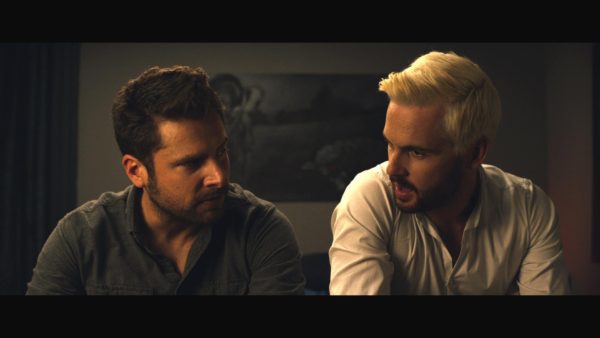| The Mill Valley Film Festival, presented by the California Film Institute, announced today the complete lineup for the 39th edition of the Festival (October 6 – 16, 2016). The 11-day event will screen films across Marin County and will feature premieres, panel discussions, and live musical performances. Every year the Festival provides attendees a first glimpse at the potential Academy Award contenders while discovering acclaimed films from local filmmakers and filmmakers across the globe.
OPENING NIGHT | La La Land and Arrival
The Festival will begin with two of the Fall’s most buzzed about films. La La Land, Damien Chazelle’s (Whiplash, MVFF 2014) love letter to dreamers, artists, Hollywood and to filmmaking, will open the Festival alongside Denis Villeneuve’s (Sicario, Prisoners) riveting and thoughtful drama Arrival. Chazelle will be on hand for Opening Night with actress Emma Stone for the Bay Area Premiere of La La Land. Following both films, MVFF will host the Opening Night Gala at Marin Country Mart.
La La Land screens Thursday, October 6 at 7:00pm & 7:15pm at CinéArts Sequoia in MillValley. Arrival screens Thursday, October 6, 7:00pm at Century Cinema in Corte Madera
OPENING NIGHT GALA
Following the two films, MVFF39 kicks off this year’s festivities with an Opening Night Gala, celebrating the glamor of cinema and our beautiful home in Marin County, at the Marin Country Mart. Enjoy fabulous food provided by Belcampo, Big Jim’s BBQ, El Huarache Loco, FarmShop, Fiorello’s, Gerard’s Paella, Johnny Donuts, Pizza Antica and Sol Food, refreshing beverages provided by Coppola Wines, Bartenders Unlimited, Lagunitas Brewing Company and Equator Coffee, and dance the night away to live music from Ethan Tucker Band. Opening Night sponsored by Wells Fargo and co-sponsored by our Official MVFF39 Airline, Delta Air Lines.
Thursday, October 6 at 9:00pm – 12:00pm at Marin Country Mart
CENTERPIECE SPOTLIGHT | 20th Century Women
Director Mike Mills, actress Annette Bening and actor Lucas Jade Zumann will be in attendance for the Centerpiece Spotlight presentation of 20th Century Women. The film follows a single mother who enlists the help of two younger women (Elle Fanning, Greta Gerwig) to help raise her teenage son in the hopes that he will grow to understand women. Following the program, Frantoio will host a reception. Centerpiece Spotlight sponsored by Marin Community Foundation.
Thursday, October 13 at 7:00pm at the Christopher B. Smith Rafael Film Center in San Rafael; Centerpiece Spotlight Reception will follow screening from 9:00pm to 11:00pm at Frantoio
CLOSING NIGHT | Loving
The Festival will close with Loving, Jeff Nichols’ moving love story about Richard and Mildred Loving, the interracial couple whose love helped change interracial marriage laws in the U.S. Nichols’ will be on hand with actors Joel Edgerton and Ruth Negga.
CLOSING NIGHT PARTY
Following the film is our legendary Closing Night Party, this year being held at the breathtakingly beautiful Cavallo Point in Sausalito. Enjoy delectable food provided by Cavallo Point, Farm Burger, Green Chile Kitchen, Sydney’s Sweets and more, beverages provided by Lagunitas Brewing Company, Coppola Wine and Equator Coffee and live music from Afrolicious. Closing Night sponsored by Jackson Square Partners.
Sunday, October 16 at 5:00pm & 5:15pm at CinéArts Sequoia in Mill Valley; Sunday, October 16 at 5:00pm at the Christopher B. Smith Rafael Film Center in San Rafael
Closing Night Party will follow screenings at 7:30pm – 11:30pm at Cavallo Point in Sausalito
TRIBUTE | Nicole Kidman
Academy Award winning actress Nicole Kidman will be the recipient of an MVFF Tribute for her work in Garth Davis’ upcoming drama Lion. Kidman’s past work will also be highlighted and she will be presented with the MVFF Award in recognition for her remarkable career. Tribute Sponsor: Christopher B. and Jeannie Meg Smith.
Sunday, October 9 at 3:00pm at the Century Cinema in Corte Madera
SPOTLIGHT | Ewan McGregor
Acclaimed actor Ewan McGregor will be on hand for the Bay Area premiere of his directorial debut American Pastoral, an adaptation of the Pulitzer-Prize winning Philip Roth novel. An on-stage conversation will accompany the screening. The program will be followed by a reception at Il Fornaio.
Sunday, October 9 at 7:00pm at the Christopher B. Smith Rafael Film Center in San Rafael
SPOTLIGHT | Gael García Bernal
Actor, director and producer Gael García Bernal (Y Tu Mamá También, The Motorcycle Diaries) will be the recipient of a Spotlight program highlighting his work in Pablo Larraín’s Neruda, the acclaimed bio-pic about beloved poet Pablo Neruda. The program will be followed by a reception at Le Comptoir. Spotlight Sponsor: Jennifer Coslett MacCready.
Monday, October 10 at 7:00pm at the Christopher B. Smith Rafael Film Center in San Rafael
TRIBUTE | Julie Dash
25 years after Daughters of the Dust first premiered, filmmaker and author Julie Dash will be the recipient of a Tribute program at MVFF featuring an onstage conversation with Dash, a clip reel of her work, and a screening of a restored version of Daughters of the Dust. The program will be followed by a reception at Green Chile Kitchen.
Friday, October 14 at 7:30pm at the Christopher B. Smith Rafael Film Center in San Rafael
SPOTLIGHT | Aaron Eckhart
Acclaimed actor Aaron Eckhart will receive an MVFF Spotlight for his role in Ben Younger’s highly anticipated film Bleed For This, in which he stars as the veteran trainer Kevin Rooney helping Vinnie Pazienza (Miles Teller) recover from his horrific accident. This program will be followed by a reception at Il Davide. Spotlight Sponsor: Wareham Development
Saturday, October 15 at 7:30pm at the Christopher B. Smith Rafael Film Center in San Rafael
Star Wars Trilogy Event
To help commemorate the final days of the Century Cinema in Corte Madera, MVFF39 will host a special daylong event showcasing the original Star Wars Trilogy, all which showed at the theater. The family friendly event will feature a costume parade, prizes and special guests. Sponsored by Ghilotti Construction Company.
Saturday, October 8 at the Century Cinema in Corte Madera
· 11:00am – Star Wars Episode IV: A New Hope
· 2:30pm – Star Wars Episode V: The Empire Strikes Back
· 6:30pm – Star Wars Episode VI: Return of the Jedi
MVFF Music
MVFF Music returns for a second year of live performances at the Sweetwater Music Hall. The nine nights include performances by artists featured in MVFF39 films as well as prominent local, national, and international musicians. Confirmed events include Thao Nguyen, Alasdair Fraser & Natalie Haas, Erika Wennerstrom, BANG! Bert Berns Celebration, Fred Hersch, Alejandro Escovedo Trio, and The Great Mill Valley Gospel Show. MVFF Music is sponsored by Marin General Hospital.
Starts Saturday, October 7 and runs till Saturday, October 15 at Sweetwater Music Hall in Mill Valley
MIND THE GAP | Women, Film, Tech
MVFF’s women’s initiative, Mind The Gap, is a celebration and call to arms to empower women in film and technology. The Festival-wide programming will feature screenings, Q&A’s, panels, master classes, and special events highlighting and exploring the work and impact of women in these fields. Highlights include: the first narrative feature from Eleanor Coppola, Paris Can Wait; a digital restoration of Julie Dash’s Daughters of the Dust; a panel about the creation of Hidden Figures, the highly anticipated film about female scientists at NASA; and a discussion with the women who work behind the scenes at Walt Disney Animation Studios. Mind The Gap is sponsored by Glassdoor, Marin Community Foundation and AMPAS.
ACTIVE CINEMA | Questions, Engage, Transform
Every year MVFF Active Cinema films explore the world and the issues facing it by engaging and transforming audiences. This year the Festival will team with special guests, co-presenters, and partners to help turn ideas into action. Highlights include: Craig Atkinson’s look at the militarization of the police force in Do Not Resist; Gianfranco Rossi’s Berlin Golden Bear Winner Fire At Sea; Company Town, Deborah Kaufman and Alan Snitow’s look at San Francisco’s changing culture; and the Active Cinema Hike, a networking in Nature event.
¡VIVA EL CINE!
¡Viva el Cine! is MVFF’s survey of the best Spanish-language and Latin American films from 2016. Highlights include: the controversial Brazilian film Aquarius; Pedro Almodovar’s latest film Julieta, Spain’s official foreign language Oscar submission; Finding Oscar, about the investigation into the 1982 massacre of a Guatemalan village; Visitor’s Day, a quiet look at a group home for at risk boys in Mexico; and The Long Night of Francisco Sanctis from Argentina.
FOCUS | KINOWERKS
MVFF39 will host a special focus on original stories from Germany that center on female characters and creators. Films in this focus include: Germany’s official foreign language Oscar submission Toni Erdmann; Doris Dörrie looks at two women – one European, one Japanese – who form a special bond in the shadow of Fukushima’s post-tsunami wasteland in Fukushima, Mon Amour; vivid animation and music enhance the monster tale Molly Monster; and 24 Weeks, Anne Zohra Berrached’s powerful drama about a woman facing a moral dilemma when she learns of a complication deep into her pregnancy.
FOCUS | Culinary Cinema
Celebrating a delicious selection of culinary films, MVFF will present a special focus on films that deal with cuisine in cinema. Films in this focus include: Ella Brennan: Commanding the Table a celebration of the life of Ella Brennan; Jeremiah Tower: The Last Magnificent follows the rise of California and Bay Area culinary legend Jeremiah Tower; Paris Can Wait, Eleanor Coppola’s narrative directorial debut starring Alec Baldwin and Diane Lane; and Theater of Life which follows Massimo Bottera as he launches a project to feed the poor in Milan, Italy.
FOCUS | Smoke Screens
Sponsored by Bloom Farms
On Saturday, October 8, MVFF39 will host a full day of film programming and panel discussions about cannabis. Starting off with Panel Great Sports! Cannabis In Athletics, which will discuss the role cannabis can play in the world of sports and followed by films including Rolling Papers, Green Is Gold, and One Week and a Day. The day will also include a special MVFF Music Show at the Sweetwater Café. The festival will be offering a $50 Canna-Pass, which provides access to all Smoke Screens programs and events.
Additional Highlights
MVFF39 is pleased to host the following Bay Area premieres: After The Storm, the latest work from Japanese master Hirokazu Kore-eda; The Architect, starring Parker Posey and Eric McCormack; Kelly Reichardt’s Certain Women starring Kristen Stewart, Michelle Williams, and Laura Dern; Antonio Campos’ haunting drama Christine; Oscar winner Danis Tanovic’s Death In Sarajevo; Denial starring Rachel Weisz and Timothy Spall; Otto Bell’s parable of female empowerment The Eagle Huntress; Paul Verhoeven’s Elle starring Isabelle Huppert; Jim Jarmusch’s documentary about rock legend Iggy Pop, Gimme Danger; The Handmaiden, the latest drama from South Korean auteur Park Chan-wook; Ken Loach’s Palme d’Or winner I, Daniel Blake; James Franco’s In Dubious Battle, an adaptation of the John Steinbeck novel; Paolo Virzi’s acclaimed Italian comedy Like Crazy; Kenneth Lonergan’s masterwork Manchester By The Sea; Bob Hercules and Rita Coburn Whack’s rare look at the life of Maya Angelou in Maya Angelou And Still I Rise; Barry Jenkins’ gritty drama Moonlight; Paterson starring Adam Driver and directed by Jim Jarmusch; Terrence Davies’ Emily Dickinson bio-pic A Quiet Passion; the acclaimed Studio Ghibli feature The Red Turtle; Oscar winner Asghar Farhadi’s The Salesman; Mia Hansen-Love’s Things To Come starring Isabelle Huppert; and Keith Maitland’s SXSW Award Winner Tower.
About the Mill Valley Film Festival
For nearly four decades, the world-renowned Mill Valley Film Festival (MVFF) has maintained its position as a vital showcase of the global film community, attracting iconic red-carpet talent, burgeoning filmmakers, passionate audiences, and astutely curated premieres. An in-demand destination for film lovers, drawn by unmatched locale and a diverse program of mainstream studio features and new visions from independent voices from around the world, MVFF also hosts an exciting array of filmmaker and industry conversations, panels, parties, and live music performances, featuring the most acclaimed emerging and veteran actors, filmmakers, and musicians of our time. A destination event for cinephiles everywhere, and known for launching new films and creating awards season buzz, MVFF has earned a deserved reputation as a “filmmaker’s festival” by celebrating the best in American, independent, and world cinema alongside high profile and prestigious award contenders. Presented by the California Film Institute, this year’s Festival runs October 6 – 16, 2016. Opening Night Gala will be held at Marin Country Mart and Closing Night Party will be held at Cavallo Point. Delta Airlines is the official MVFF39 airline.
Screening locations include: CinéArts@Sequoia and The Sweetwater Music Hall (Mill Valley), Christopher B. Smith Rafael Film Center (San Rafael), Cinemark Century Larkspur Landing and Lark Theatre (Larkspur), and Cinemark Century Cinema Corte Madera (Corte Madera).
About the California Film Institute
The non-profit California Film Institute celebrates and promotes film as art and education through year-round programming at the non-profit independent theatre, Christopher B. Smith Rafael Film Center, presentation of the acclaimed Mill Valley Film Festival and cultivation of the next generation of filmmakers and audiences through CFI Education programs. For more information, visit http://www.cafilm.org or call (415) 383-5256. |
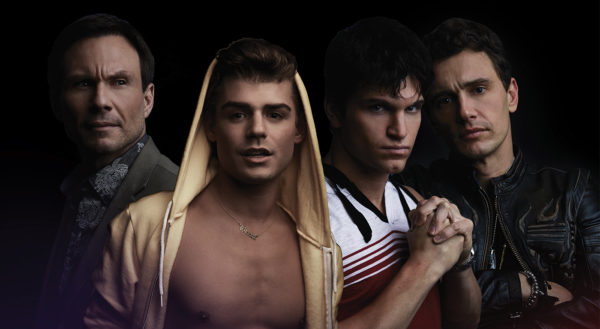

 Translate
Translate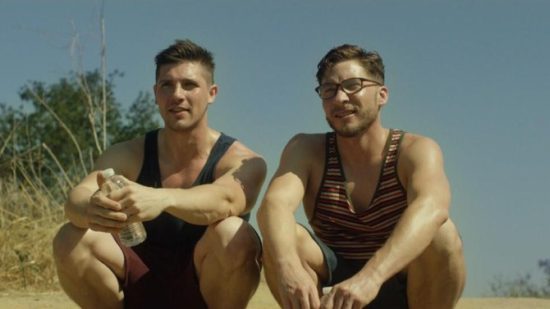
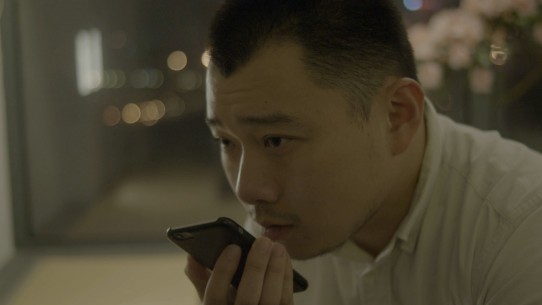
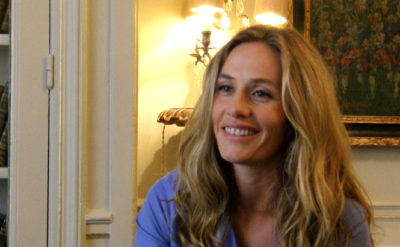 Even with the students demanding change in Paris, the movie succinctly reminds us that in the early 1970’s being homosexual was still far from being acceptable as evident by the fact that one of the group’s projects was rescuing a friend from a mental institution where he had been committed just for being gay. This rather compelling story is not just about coming to terms with one’s own sexuality and finding acceptance in society, but also that when you still live in the shadows having to choose between people you love, is never an easy choice.
Even with the students demanding change in Paris, the movie succinctly reminds us that in the early 1970’s being homosexual was still far from being acceptable as evident by the fact that one of the group’s projects was rescuing a friend from a mental institution where he had been committed just for being gay. This rather compelling story is not just about coming to terms with one’s own sexuality and finding acceptance in society, but also that when you still live in the shadows having to choose between people you love, is never an easy choice.